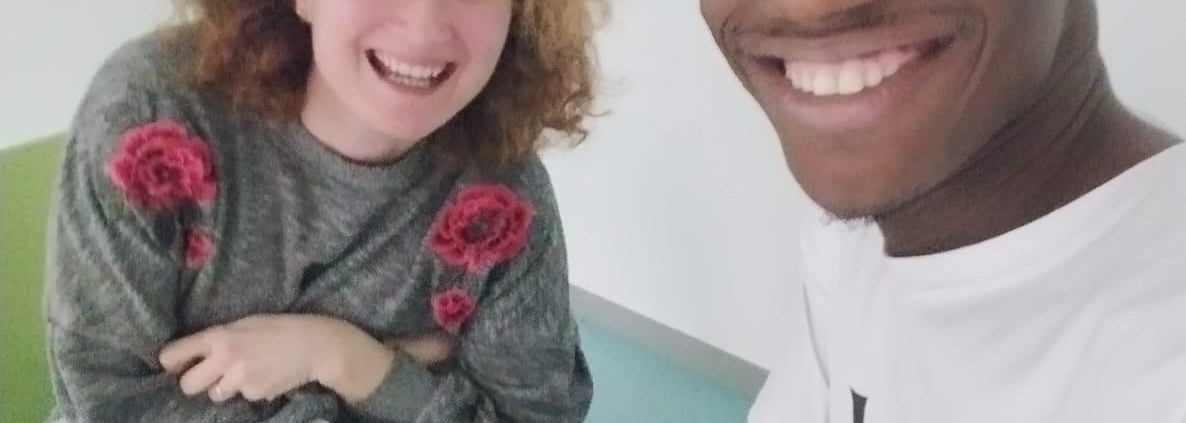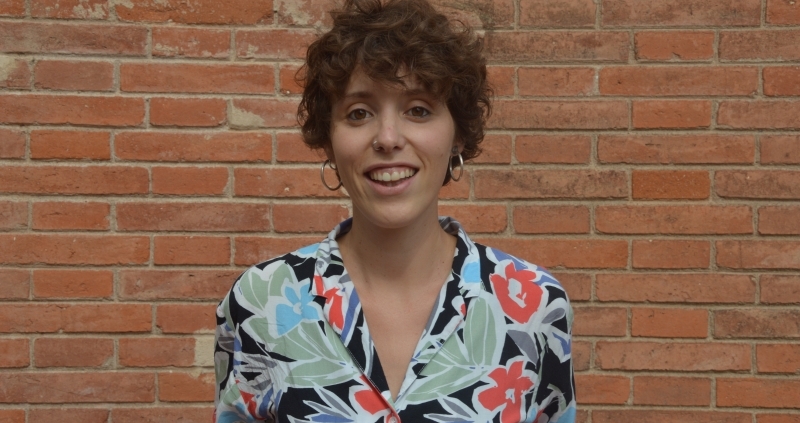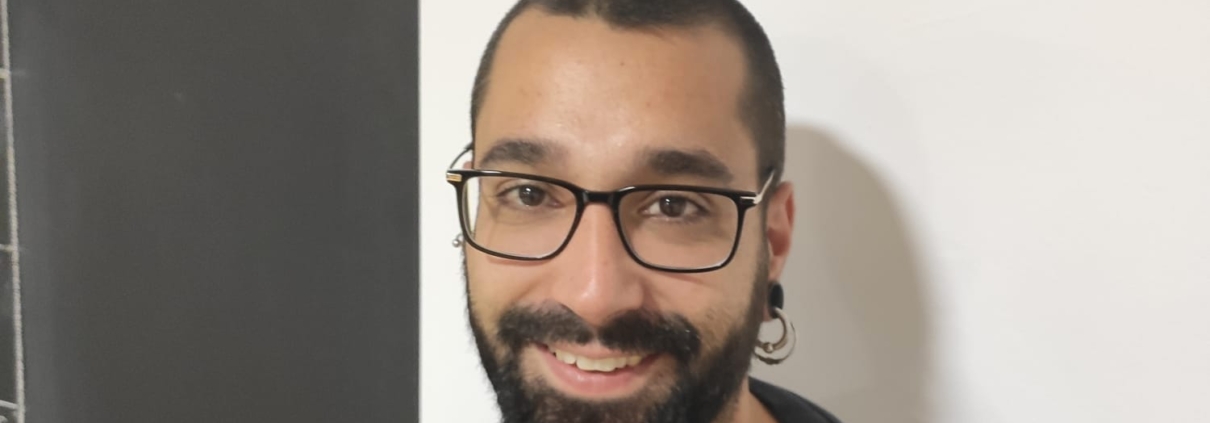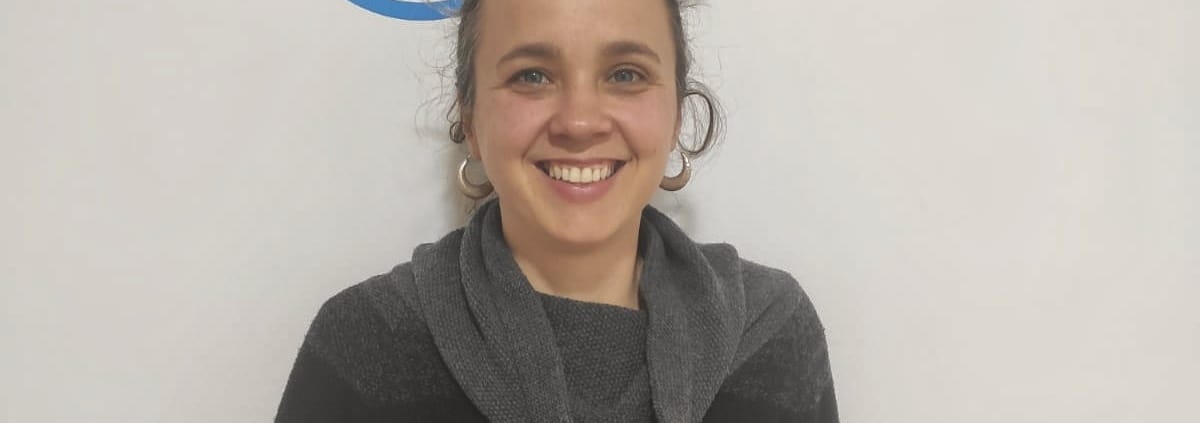Hacerse socio de Punt de Referència es una manera de aportar tu granito de arena para generar cambios sociales
Emma Armengod Martínez tiene 47 años y es bibliotecaria, actualmente directora de la Biblioteca Trinitat Vella – J. Barbero de Barcelona. Ha sido voluntaria en el proyecto Referents de Punt de Referència.
¿Qué es Punt de Referència para ti?
Punt de Referència es más que un proyecto concreto; es un espacio seguro que me ha permitido acercarme a la realidad de muchos jóvenes y sentirme acompañada.
¿Cómo conociste la entidad?
Conocí Punt de Referència por recomendación de gente cercana y después por seguir a la entidad en redes sociales. También vi una exposición del proyecto y decidí que quería saber más.
¿Qué te ha aportado vincularte a Punt de Referència?
Desde hacía mucho tiempo tenía ganas de participar, pero siempre decía que “nunca era el momento”. Por suerte dejé de posponerlo y me decidí por la formación. También tenía muchas ganas de romper con los estigmas en torno a la juventud migrante.
¿A través de qué proyecto has estado vinculada a la entidad?
Me vinculé a través del proyecto Referents, que busca establecer un vínculo entre la persona voluntaria y el joven para acompañarlo en su proceso de emancipación. Durante unos nueve meses, y en mi caso, como el joven también estaba vinculado al Proyecto Atenea (dirigido a jóvenes que están estudiando), pude ayudarle con sus estudios y también acompañarlo a conocer la ciudad y vincularlo a los servicios y proyectos que podían irle bien.
Tras la finalización del proyecto seguimos hablando y viéndonos, pero de otra manera, quizá mucho más efectiva, porque ya formamos parte de la vida el uno del otro.
¿Cómo ha sido la experiencia para ti?
¡Magnífica! Mucho mejor de lo que esperaba. En algunas ocasiones un poco dura por la realidad de la juventud, pero ha sido una experiencia muy enriquecedora. El joven al que acompañé, Ebrima, me ha enseñado muchísimas cosas y me ha cambiado la perspectiva que tenía sobre otras. Ha sido un acompañamiento muy bonito y tranquilo. En algunos momentos, vernos nos ha ayudado a ambos. Ver el empuje que tiene para salir adelante, a pesar de las dificultades, y conocer de cerca esas dificultades, creo que me ha aportado mucho. De hecho, después de la finalización del proyecto seguimos hablando y viéndonos, pero de otra manera, quizá mucho más efectiva, porque ya formamos parte de la vida el uno del otro.
¿Recomendarías a otras personas que se vincularan a Punt de Referència?
Para mí, la experiencia es 100 % recomendable. Diría a las personas que no se lo pensaran, que a menudo todas las ideas preconcebidas que tenemos son erróneas y que conocer a estos jóvenes de cerca vale mucho la pena. Yo hablo de este proyecto con mucha ilusión y esperanza.
Nos encontramos en un contexto de auge de la extrema derecha y de los discursos de odio hacia colectivos en situación de vulnerabilidad, como por ejemplo la juventud migrante. ¿Cuál crees que debe ser el papel de la sociedad civil en este marco?
Es terrible que estos discursos siempre se centren en determinados colectivos. La sociedad civil tiene el deber de hablar desde el conocimiento, no desde la desinformación y las mentiras que circulan por las redes. Vivimos un momento en el que la desinformación está a la orden del día y la gente se lo cree todo sin contrastar. Esto ayuda a la extrema derecha, que se aprovecha y crea discursos de odio donde parece que todo vale. Me da mucho miedo esta deriva.
Estamos impulsando una campaña para sumar nuevas personas socias a Punt de Referència. ¿Por qué es importante que la gente se haga socia de la entidad?
Es importante participar en proyectos en los que se pueda dar voz a la sociedad y que las personas hablen desde un punto de vista razonado. Por eso, hacerse socio de una entidad como Punt de Referència es importante para poder hablar con fundamento y aportar tu granito de arena para generar cambios sociales.
Formar parte de este proyecto es un aprendizaje personal y social. Es de las mejores experiencias que he vivido.
¿Qué te gustaría decir como aprendizaje o lección para cerrar esta entrevista?
No soy muy de dar lecciones; solo puedo decir que formar parte de este proyecto es un aprendizaje personal y social. Es de las mejores experiencias que he vivido. Quiero dar las gracias a las personas que forman parte de Punt de Referència por su ayuda y su acompañamiento, porque han hecho que este camino haya sido mucho más fácil.



